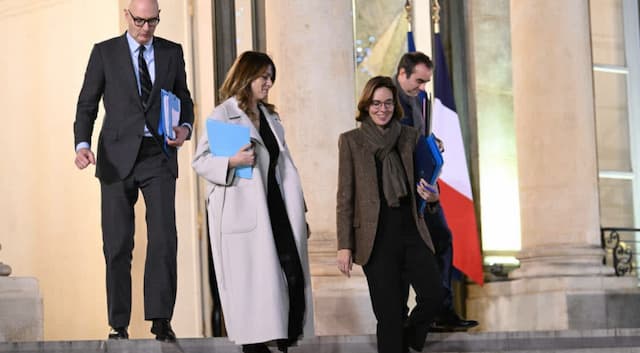EDF Sign Agreement on Hinkley Point with the British Government

NUCLEAR: This colossal project of the construction of the EPR reactor is expected to cost at least 21 billion euros …
Finally must say EDF. After ten years of preparation, the mammoth project of nuclear plant at Hinkley Point was signed by the British authorities, the French electricity company and their Chinese partners, during a rather discreet ceremony in London on Thursday. Initialed in the presence of French Foreign Minister Jean-Marc Ayrault, the proposed 18 billion pounds (21 billion euros) is to build two EPR reactors in the southwest of England, and coming into service for late 2025.
“The UK needs to renew its energy supply, and we have always maintained that nuclear plants as Hinkley play an important role”, welcomed the British Minister for Energy, Greg Clark, during a brief signing ceremony at the discretion by the British government. After being given a final time for reflection at the end of the summer, the British Prime minister Theresa May has agreed to the project .
A relief for EDF
Hinkley Point will indeed boost the sector in the UK, which assists with the project in the first nuclear power plant built on its soil for over twenty years. It must provide 7% of UK electricity needs and could be followed by other constructions, London is counting on this to meet its commitment to reduce by 57% its emissions of carbon dioxide by 2030 compared to their level 1990.
For EDF, the contract signing is a relief after years to prepare plans, convince successive governments and soothe questions internally. CEO Jean-Bernard Levy explained to the press that this day was to mark “a milestone for those who have worked so long” on the project.
Unions and environmentalists headwind
However, the EDF unions fear that the huge cost of Hinkley Point will weaken the group already facing a wall of investments, including the renovation of the French nuclear fleet and the acquisition of the business of Areva reactors in a highly degraded energy environment. Another point of concern is no EPR reactor is still in service in the world because of slippages in time and cost of work in progress, especially in Flamanville (Manche) and Finland, although the direction of EDF promises to profit from these painful experiences.
The British government will spend “billions of pounds of taxpayers’ money for a project opposed by many legal obstacles, financial and technical,” lamented the environmental group Greenpeace, denouncing “outdated technology, risky and ridiculously expensive”. Many environmentalists consider projects such as wind, and new energy storage technologies more attractive and a better use of money.
Enjoyed this? Get the week’s top France stories
One email every Sunday. Unsubscribe anytime.


